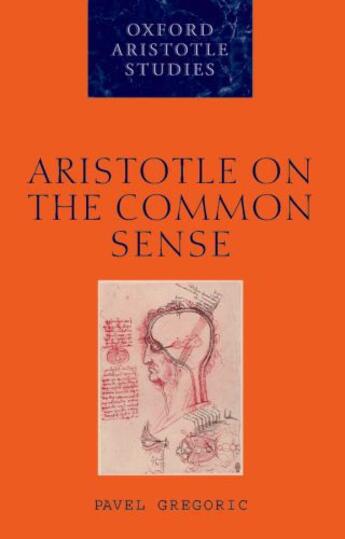-
Nombre de pages : (-)
-
Collection :
(-)
-
Genre :
(-)
-
Thème :
Non attribué
-
Prix littéraire(s) :
(-)
Résumé:
Apart from using our eyes to see and our ears to hear, we regularly and effortlessly perform a number of complex perceptual operations that cannot be explained in terms of the five senses taken individually. Such operations include, for example, perceiving that the same object is white and... Voir plus
Apart from using our eyes to see and our ears to hear, we regularly and effortlessly perform a number of complex perceptual operations that cannot be explained in terms of the five senses taken individually. Such operations include, for example, perceiving that the same object is white and sweet, noticing the difference between white and sweet, or knowing that one's senses are active. Observing that lower animals must be able to perform such operations, and being unprepared to ascribe any share in rationality to them, Aristotle explained such operations with reference to a higher-order perceptual capacity which unites and monitors the five senses. This capacity is known as the 'common sense' or sensus communis. Unfortunately, Aristotle provides only scattered and opaque references to this capacity. It is hardly surprising, therefore, that the exact nature and functions of this capacity have been a matter of perennial controversy.
Pavel Gregoric offers an extensive and compelling treatment of the Aristotelian conception of the common sense, which has become part and parcel of Western psychological theories from antiquity through to the Middle Ages, and well into the early modern period. Aristotle on the Common Sense begins with an introduction to Aristotle's theory of perception and sets up a conceptual framework for the interpretation of textual evidence. In addition to analysing those passages which make explicit mention of the common sense, and drawing out the implications for Aristotle's terminology, Gregoric provides a detailed examination of each function of this Aristotelian faculty.
Donner votre avis














